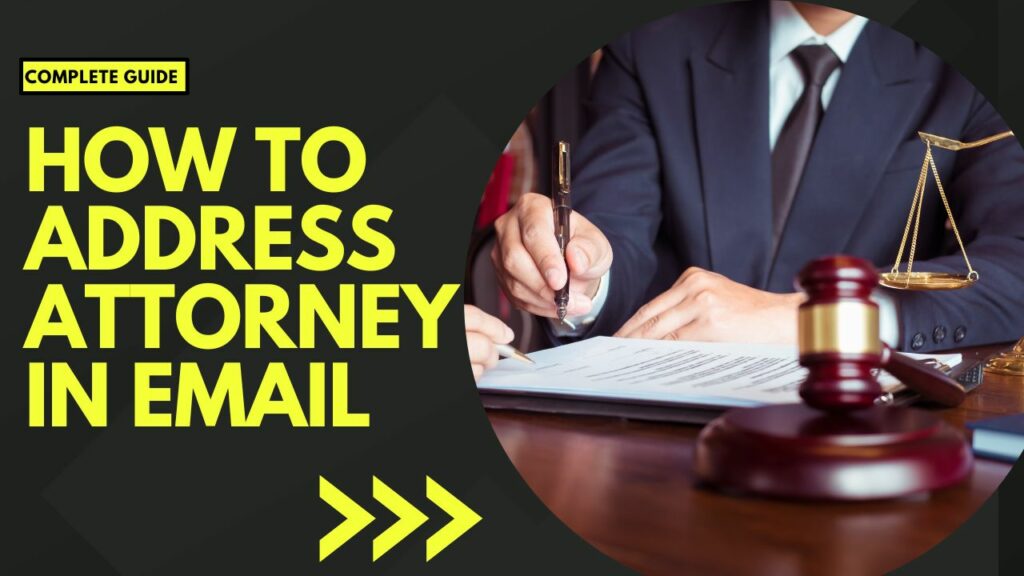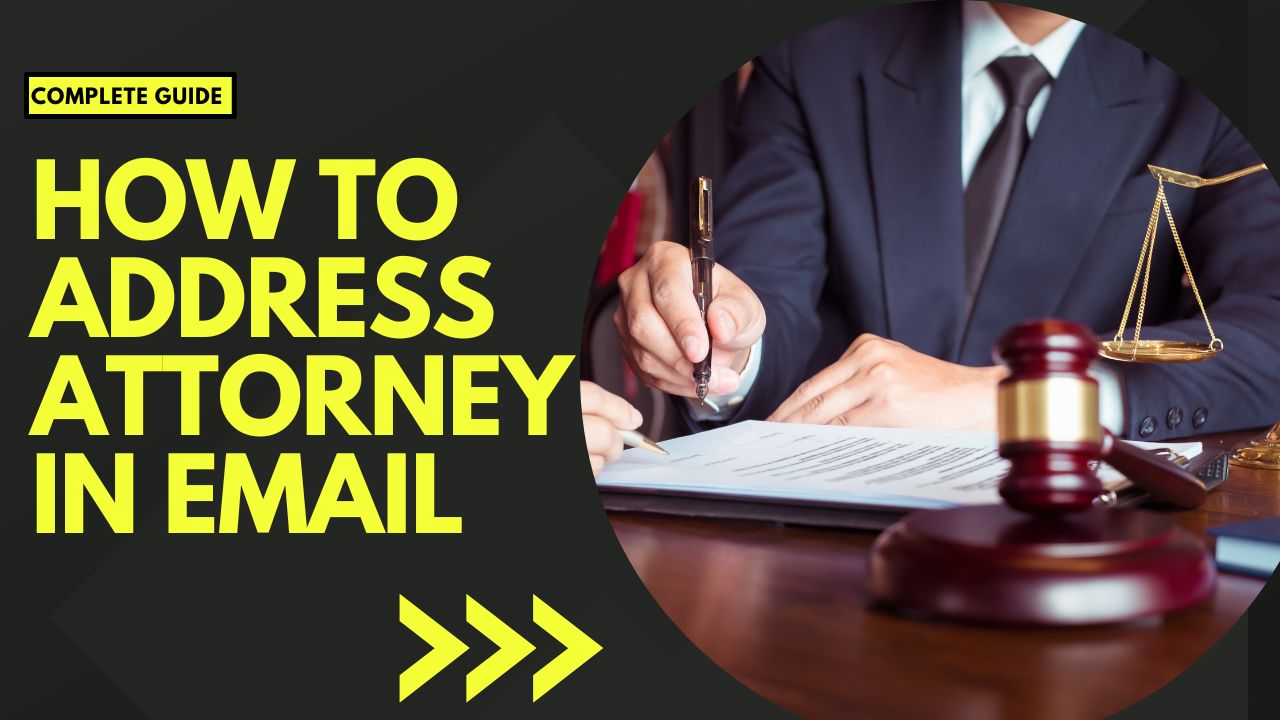 You might have encountered a lawyer or an attorney and needed help approaching them, especially if you don’t know them well if they had a law degree or had already passed the test. But don’t worry. Different from other professional degrees, addressing an attorney is always confusing here. We’ll talk about how to address attorneys in email in this article. Continue reading to learn how to address attorney in email the next time you encounter one.
You might have encountered a lawyer or an attorney and needed help approaching them, especially if you don’t know them well if they had a law degree or had already passed the test. But don’t worry. Different from other professional degrees, addressing an attorney is always confusing here. We’ll talk about how to address attorneys in email in this article. Continue reading to learn how to address attorney in email the next time you encounter one.
Also read: How to Email a Tattoo Artist (Full Guide with Pictures)
How to address attorney in email
1. Addressing an attorney using “Mr.” or “Ms.”
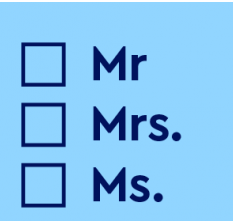
Using “Mr.”, “Mrs.” and “Ms.” followed by their last name is often acceptable, just like with any other profession. The same salutation applies while writing an email or a letter. It is only possible to address an attorney correctly using this manner.
You can address an attorney; however, he prefers if you have a long-lasting relationship with him, for instance, if he has become your counsel or is now representing you in a lawsuit. No matter how professional they may seem, most people prefer to be addressed by their first name.
2. When writing on a legal issue, use the courtesy title “Esquire.”
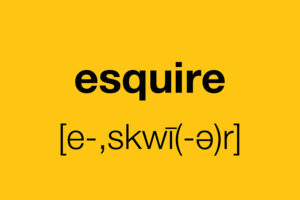
Traditionally, you would only address an attorney with this courtesy title if you were writing to them regarding a matter they were representing. If you’re mailing your letter, include the attorney’s full name, a comma, and the abbreviation “Esq.” on the envelope.
Avoid using “Mr.” or “Ms.” in front of an attorney’s name if you use the title “Esquire.” Utilize only their first and last names.
As people usually don’t use “Mr.” or “Ms.” in those contexts, neither do attorneys typically use the courtesy title “Esquire” on their letterhead or business cards. However, it would be best if you still utilized it whenever you addressed an envelope to an attorney.
3. Consider using “Attorney at Law” instead of “Esquire.”
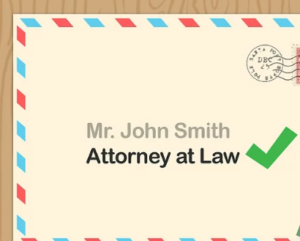
If you find the courtesy title “Esquire” archaic, “Attorney at Law” also conveys the same degree of respect and distinction. Use two lines with “Attorney at Law” immediately underneath the attorney’s complete name rather than after it.
In using “Attorney at Law,” you should prefix the attorney’s first name with “Mr.” or “Ms.”
4. In an academic setting, it is best to place “J.D.” after an attorney’s name.
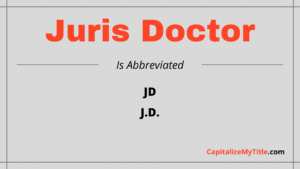
Suppose the attorney writes an article for a law journal or works as a law professor. In that case, you’ll typically use “J.D.” instead of “Esquire.” That is because some states lets you take the bar exam and become a licensed attorney without having a J.D. Listing the degree conveys their academic credentials in a way that “Esquire” does not.
If an attorney holds multiple degrees, the abbreviations will follow their name in ascending order of highest to lowest.
Please be aware that a J.D.—which stands for “Juris Doctorate”—is not a doctoral degree. If an attorney doesn’t also hold a Ph.D. or a medical degree, you should never address them as “Dr.”
What is the Difference Between Attorney and Lawyer
How to address attorney in email works similarly to how to address a lawyer in an email. But there is a slight difference between an attorney and a lawyer.
An attorney is a lawyer with a license to practice law. On the other hand, a lawyer is a person who has completed law school and passed the bar test. However, they are only sometimes authorized to practice law. A lawyer must pass the bar test in their jurisdiction to become admitted to practice law. After passing the bar test, candidates are qualified to represent clients in court and give them legal counsel.
What is the Difference Between J.D. and Esquire
Law school graduates obtain the titles of Esquire and Juris Doctorate, respectively. Once The terms J.D. and Esq, while they have different meanings, are frequently used interchangeably. J.D. is used to refer to someone who has completed legal education. In contrast, Esq relates to someone who not only completed legal education but also has the legal authority to practice law and represent a client in court.
In summary, the title J.D. refers to a lawyer, whereas Esquire addresses an attorney.
Also check: How to Email a Therapist for the First Time
Conclusion
And that is how to address attorney in email and how to address a lawyer in an email. It’s essential to speak to a lawyer appropriately. When you properly talk to them, they will, at the very least, be more receptive to what you have to say.
Although attorneys may occasionally have preferences, you can often use the titles interchangeably. The attorney may mention their discretion on the attorney’s business cards, websites, etc. Most of the time, properly speaking to them is different. Before consulting an attorney, it is beneficial to obtain such information. However, you can utilize it if you need to know the attorney’s choice.
You might also like: How to use disposable email address for website signups

